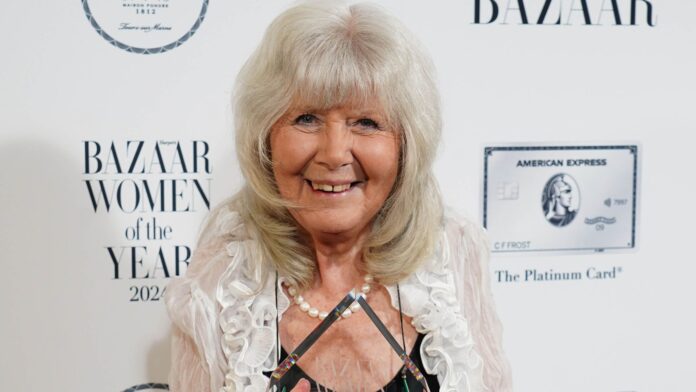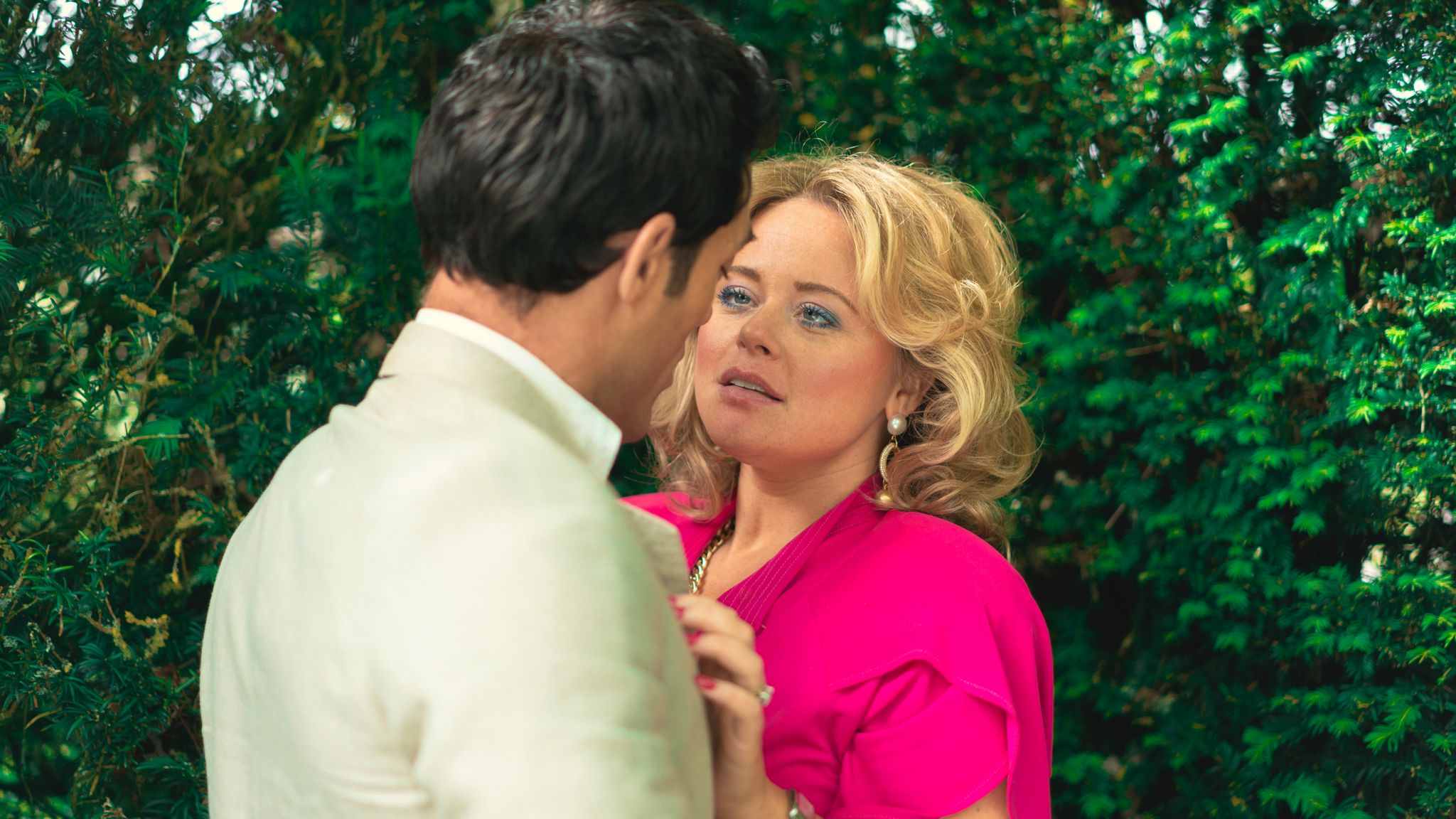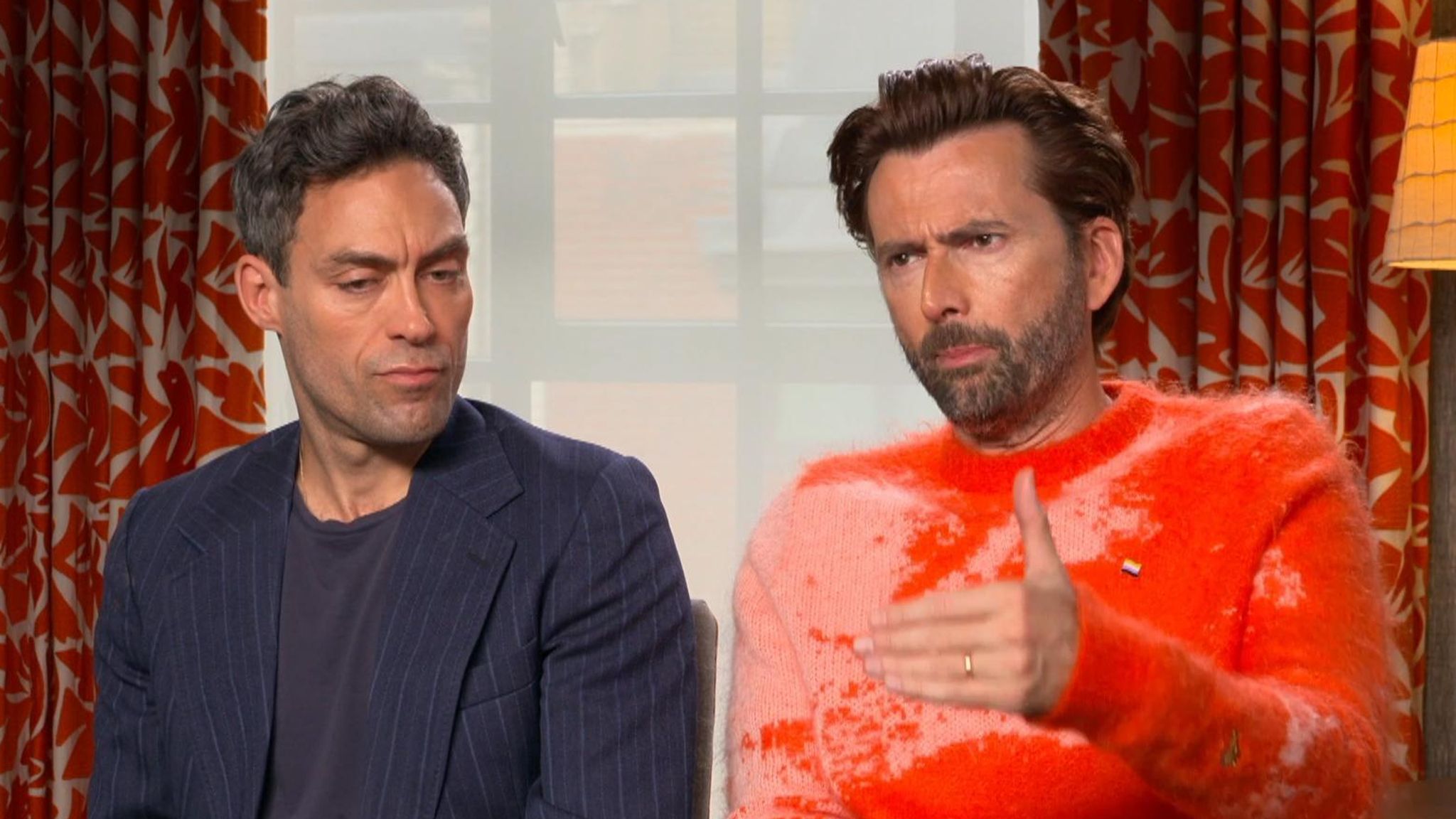“You can’t flirt any more. We used to have so much more fun!”
Dame Jilly Cooper, 87, looks back with nostalgia to her heyday towards the end of the last century. So do the many fans of her stories in print, audiobooks and on screen.
Rivals, Disney’s dramatisation of her 1988 “bonkbuster”, set in the fictional Cotswolds county of Rutshire, has been one of the TV hits of the year on both sides of the Atlantic.
A second series was commissioned. Cooper says she is “orgasmic with excitement and cannot wait for the return of my superhero Rupert Campbell-Black”, as played by the actor Alex Hassell.
There will be plenty of action left for the libidinous Campbell-Black because – Spoiler Alert! – Series One ends with his TV franchise battle with David Tennant as Lord Baddingham still unresolved.
Younger viewers probably don’t know what a TV franchise was, which makes it all the more remarkable that Rivals is so popular.
Most people probably tune in for the romance of Rivals’ English countryside setting, for the big hair, and the guilt-free sexism of Rutshire’s priapic men and eager women.
A visiting Hollywood actor flirting in a backroom with a production assistant he’s only just met and an adulterous couple playing “naked tennis” outdoors epitomise the 1980s’ vibe.
In today’s moral climate, Dame Jilly admits a real-life Campbell-Black would probably be “locked up in prison”.
It is not just the sex. In many ways, Rivals is a case study of how British television has changed in the past half-century.
The show’s main characters are TV executives and personalities satirised by Cooper, who was a “swinging ’60s” media star in her own right.
The glossy production also manifests how the TV business is changing. It is made by Disney for its streamer services around the world, not by a national British broadcaster such as ITV or the BBC.
Franchises and cosy monopolies
The behaviour of the characters in Rivals is only an exaggeration of what actually went on. There was plenty of money around in British media up to the ’80s. And those who were lucky enough to get a piece of the action indulged themselves.
Possession of an ITV franchise was famously described as “a licence to print money” by Lord Thomson, the founder of Scottish Television.
From 1955 ITV had a commercial monopoly in the UK. The licence payer-funded BBC did not carry s. Commercial competitors such as Channel 4, Channel 5, Sky TV or YouTube only began to arrive in the ’80s.
Revenues were so plentiful that ITV was divided up into a federal system. There were 15 regional franchises, showing each other’s programmes, based around production hubs in the UK’s major cities.
In Rivals, Baddingham’s Corinium is fighting off a challenge by Venturer for a fictional West Country franchise.
Local grandees Campbell-Black, Olympian equestrian medallist and Tory MP, and Irish chat show host Declan O’Hara are being courted by both sides – because, incredibly to us today, the exclusive 10-year franchise licences were handed out by the government-appointed regulator on a “they seem like good chaps” basis.
I came into ITV just as its cosy monopoly was breaking up but there was still plenty of entitled behaviour to go around.
TV-am, the breakfast television franchise, competed for the same pool of advertising with the old federal ITV.
Commercial competition was mounting but, typically, TV-am was handed the licence because it was fronted by the “Famous Five” of well-known TV stars, including David Frost and Michael Parkinson, even though they had no proven experience running a major business.
TV-am’s studio and style are lovingly parodied in the daytime programming shown in Rivals.
Read more from Sky News:
Naked tennis and ’80s makeovers galore – TV adaptation of Rivals
Israeli-Palestinian boyband was ready to take on the world
Dick Van Dyke ‘not afraid’ of death ahead of 99th birthday
Was TV in the ’80s a sexist environment with a lot of “bonking” going on? It was certainly different.
There was smoking in the office, including big cigars and plenty of banter. And it was commonplace for sexist remarks to be overheard in the office.
I remember senior male editors congratulating themselves for sending a female reporter to join a male rugby scrum clad in shorts.
But it was also not uncommon for female news desk assistants to tease their male colleagues in the office too.
‘I love being wolf-whistled’
Jilly Cooper built her career by writing wittily about sex and relationships in an era which was seen as one of “sexual liberation” thanks to no-fault divorce, abortion and the pill.
In her opinion, the #MeToo movement spoilt it all. “I love being wolf-whistled”, she told The Irish Independent, “what worries me is that some poor man at the end of his life will be hauled out and told that he jumped on somebody in the year BC”.
Others will have less sympathy for prominent media figures whose behaviour has been subsequently exposed and judged, sometimes after their death.
With hindsight from today, there is a very uncomfortable scene in Rivals when Campbell-Black gropes young Taggie O’Hara intimately while she is waiting on him.
In the story, the incident is laughed off around the dinner table and provides the cue for two macho men, Declan, her father, and Campbell-Black, to face off.
Dame Jilly surely surmised correctly that her hero’s behaviour would have more serious consequences now.
ITV has had to sober up as well. Margaret Thatcher exposed television to market forces and effectively put a stop to the franchise gravy train.
ITV “rationalised” into a single company, with negligible regional outposts. Today it is in the FTSE100, with a legacy of loyal, mainly older, viewers.
Rumours abound that ITV may be taken over by a bigger multinational conglomerate. At best, ITV today would only make a camp high-end series of limited appeal like Rivals as a junior partner in a co-production.
Age of careless excess
For Disney+ Rivals is a relatively minor expense and a gamble worth taking over time.
Its first episode had a healthy 441,000 viewers in the UK when it premiered. Back in the pre-digital days when the BBC ITV duopoly ruled, and programming could only be watched when being transmitted live, big audiences were measured in the tens of millions.
Rivals wallows luxuriantly in a bygone age of careless TV excess. As the critic for the up-market art magazine Apollo noted, it is “a knowingly shallow parade of full-frontals and campery that offers very little other than surface. And what could be more 1980s than that?”.
Doubtless, many viewers, especially veterans from ITV, are enjoying Rivals as a slightly queasy “guilty pleasure” – “like eating a whole box of chocolates or going to bed with a rotter”, as someone, I think it was Jilly Cooper, once said.
Source : Sky News








